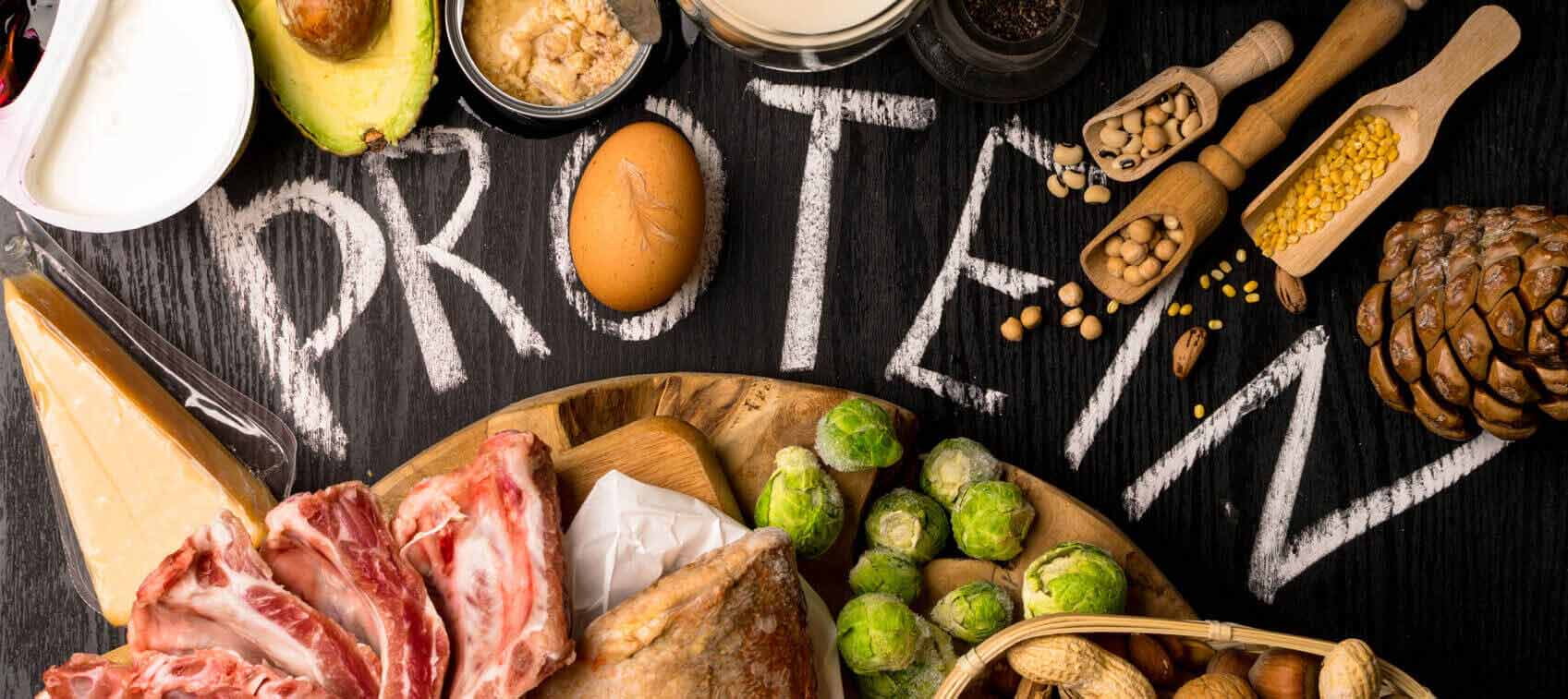
The high-protein diet is one of today’s hottest—and most controversial—food trends. But is it healthy?
First, there’s no disagreement about the importance of this essential nutrient. Protein is the main structural constituent of your bones, muscles, organs, and virtually every cell in your body. Plus, its amino acids are the building blocks of enzymes, antibodies, neurotransmitters, and messenger and transport molecules, which carry out most of the work of your cells.
The debate is about the pros and cons of consuming lots of protein-rich foods while restricting carbohydrates. My intention here is not to jump into the fray. Most any type of diet, whether it is high in protein, fat, or carbohydrate, can be a health boon—or a total bust.
What I want to focus on is the importance of getting enough protein—which is extremely important. Despite all the attention on high-protein diets, nutrition surveys reveal that a significant percentage of Americans—especially those over age 50—fail to get the minimum recommended intake. Here’s why that’s an issue.
Your Body Needs Protein for Muscle Growth
Bodybuilders have been tuned in to protein’s benefits for the body long before the current craze began. Weightlifting and other types of exercise create micro-tears in the muscles, which the immune system naturally repairs—with the help of amino acids. Having a ready supply of amino acids facilitates the healing and growth process. And as bodybuilders know, new muscle tissue is bulkier and stronger.
Although optimal protein intake is essential for muscle maintenance and repair, simply eating more meat or drinking protein shakes will not strengthen or tone your muscles. Combining extra protein with resistance exercise, however, helps prevent and even reverse muscle loss. This is particularly important as you get older, because age-related muscle loss begins in your 30s and, unless you do something about it, speeds up with every passing decade.
Protein Benefits for Weight Loss
A common reason for adopting a high-protein diet is weight loss, and research suggests there is some merit to this approach. Here’s why.
- Satiety. Ounce for ounce, protein is more satiating than carbohydrates and fats. It tides you over so you feel full longer and may lead to a reduction in total caloric intake.
- Fat-burning. The breakdown and absorption of proteins is more complicated and requires twice as much energy as digesting carbs and fat. In other words, eating protein increases metabolism and burns more calories.
- Muscle maintenance. You want to lose fat rather than lean body mass. Getting enough protein (and exercising) while on a weight-loss program minimizes muscle loss and improves overall body composition.
Protein & Bone Health
There’s some confusion about the effects of dietary protein on bone health. Researchers used to believe high protein intake, especially from animal sources, makes the blood slightly acidic—and to neutralize it, calcium is leached from the skeleton, resulting in weaker bones.
More recent research, however, has debunked this idea. Rather, a robust intake of dietary protein has been shown to have beneficial effects—on bone growth and development in children and adolescents, and bone density and strength in adults. Furthermore, studies of older women—the group most likely to experience bone loss and osteoporosis—have linked a higher protein intake to greater bone density and a lower risk of fracture.
Protein Promotes Graceful Aging
For all of the above reasons and more, optimizing your protein intake is even more important as you get older. In a study involving participants in the long-running Framingham Heart Study Offspring, researchers found that those in the highest protein-consumption group, who ate an average of 92 g per day, were significantly less likely over the next 20 years to have a loss of functional integrity, as measured by gait speed, grip strength, and likelihood of falls, fractures, and frailty.
Unfortunately, protein consumption tends to decrease with advancing age. One thing you can do to prevent physical decline, frailty, and disability as you grow older is to make sure you’re getting enough dietary protein. To put 92 g into perspective, have a cup of Greek yogurt for breakfast and eat a 4-ounce chicken breast with lunch and dinner, and you’re covered. If you’re not eating enough, supplement with protein-enriched powders, drinks, or bars.
Protein and Your Kidneys, Liver & Heart Health
Protein plays a role in the health of your kidneys, liver, and heart as it does in every system in your body, and protein malnutrition adversely affects all these organs. However, there are caveats regarding protein intake for individuals with certain health conditions.
- Kidney disease. If you have kidney disease, which is pretty common in people with a long history of diabetes or hypertension, you may need to go easy on protein, as it can accelerate kidney damage.
- Advanced liver disease. A diseased liver may break down proteins too rapidly, deplete stores, and result in protein malnutrition. On the other hand, excessive intake may overwhelm a poorly functioning liver with ammonia, which is a waste product of protein metabolism.
- Heart disease. The jury is still out on the links between high protein and heart health. Some research suggests a protein-rich diet is associated with a slightly increased risk of heart disease (especially heart failure). Other studies indicate it may reduce risk by lowering blood pressure. To further muddy the waters, study results differ between sources of protein. Fish and plant protein, for example, are routinely shown to be protective.
To be clear, protein doesn’t cause any of these problems, and a higher-protein diet will not affect healthy kidneys, livers, or hearts. However, if you are dealing with any of these health challenges, talk to your doctor about specific protein recommendations.
How Much Do You Need?
For the rest of you, protein requirements vary, depending on your age, sex, size, and activity level. You can figure out how much you need with an online protein calculator—or simply make a point of eating a 3–5 ounce serving of high-quality protein with every meal along with protein-rich snacks.
Bon appétit!


